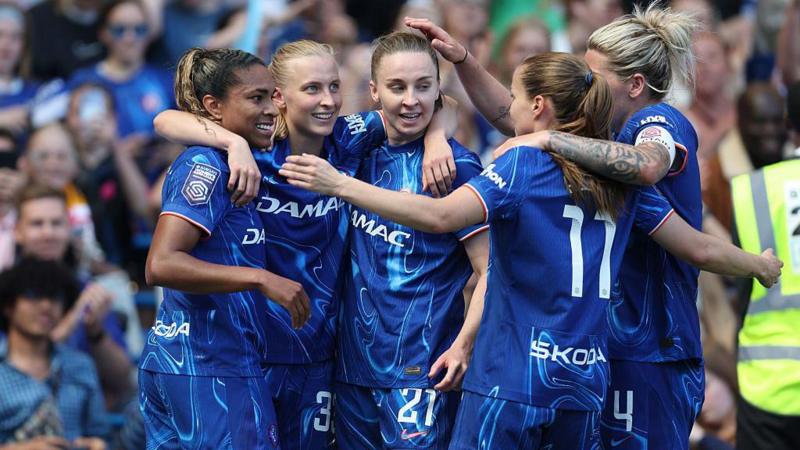WSL Series Announces Groundbreaking Minimum Salary Hike!



In a landmark move showcasing significant progress in professional women's football in England, the introduction of minimum salaries for players has been announced for the current season across the top two tiers. This initiative represents a pivotal step toward addressing longstanding disparities in the sport and promoting a more equitable professional environment.
Previously, players in women's football leagues often encountered financial instability, with many having to supplement their income with secondary jobs or facing the dilemma of quitting the sport altogether. The financial challenges were more acute in the lower tiers, where compensation did not always reflect the players' commitment and contribution to the sport.
The decision to set a minimum wage signifies recognition of the players' prowess and dedication, aligning more closely with the practices observed in men's football, though the gap remains substantial. Historically, the dramatic discrepancies in pay and conditions have been a point of contention, drawing criticism from players, fans, and advocates of the sport alike.
This change comes not in isolation but as part of a broader movement striving for gender equality in sports. Recent years have witnessed significant shifts, such as improved broadcasting deals and increased viewership, sponsors beginning to invest more robustly in women's leagues, and a general rise in the profile and respect afforded to female footballers. The introduction of minimum salaries can be seen as another stride towards leveling the playing field.
The England women's team's success on the international stage has also played a crucial role in elevating the status of the sport within the country. Their performances have not only garnered national pride but also heightened visibility and respect for women's football, pressuring leagues and organizers to reconsider and revamp their policies regarding female athletes.
However, it is crucial to understand that while this is a step in the right direction, it is but one piece of a much larger puzzle. Issues such as facilities access, coaching, medical care, and travel conditions often still lag behind those provided in men’s football. The players and teams still strive for improvements in these areas to ensure women's football is on an equal footing with men's, not only in terms of pay but also the overall professional environment.
The debate around remuneration in sports, especially between genders, remains a heated one. Critics argue that revenue generated by the respective sports justifies the wage discrepancy between men's and women's football. However, advocates counter that investment and coverage disparity is part of a vicious cycle that keeps women's sports from reaching their potential audience and revenue.
With the introduction of minimum salaries, clubs are now more accountable for the financial well-being of their players, creating a more stable career path for many aspiring and current athletes. This development could potentially increase the talent pool, as more players can afford to focus fully on the sport without financial distractions.
The ripple effect of this policy will likely extend beyond just the athletes to the communities surrounding them. Aspiring female footballers can now look towards these developments as affirming the viability of football as a career choice, potentially increasing participation rates at grassroots levels.
Despite these positive developments, it is essential for the momentum to continue and for more comprehensive policies to be introduced. The ultimate goal remains to ensure fair treatment and equal opportunities, not just in football or sports but across various sectors where gender disparities are prevalent.
In conclusion, the introduction of minimum salaries in women's football marks a significant step forward in the journey towards gender equality in sports. It acknowledges the hard work and dedication of female footballers and sets a precedent that hopefully inspires other sports leagues worldwide to evaluate and improve their own practices and policies concerning female athletes. As we celebrate this progress, the broader implications hint at an evolving sports culture that champions fairness and respect for women in the professional sphere.